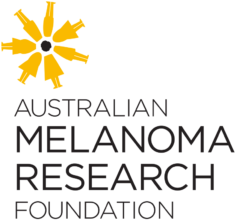2022 Research Grants
We are delighted to announce the AMRF grant recipients for 2022.
It is only through the support of our partners and donors that this support is available. Thank you for making a difference. Our Research Committee, which included two external experts, has awarded support to four outstanding young researchers. This year AMRF has doubled the number of researchers and funding support. We are also delighted to showcase two inaugural grants, the Warren Meanwell Melanoma Research Grant and the LEK Consulting Melanoma Research Grant.
Inaugural Warren Meanwell Melanoma Research Grant
The Lentigo Maligna Project
Dr Bruna Melhoranse Gouveia
Melanoma Institute Australia and Sydney University, NSW
Inaugural LEK Consulting Melanoma Research Grant
Unlocking the melanoma tumour micro-environment through novel spatial transcriptomics methodologies
Dr Prachi Bhave
Peter MacCallum Cancer Centre, VIC
Post Graduate Research Grant
Investigating spatial interactions of melanoma and cytotoxic cells within lymph nodes
Isobel Leece
Monash University, VIC
Early Career Researcher Grant
Testing Nicotinamide as a metabolic adjuvant to increase efficacy of immunotherapy in melanoma
Dr Sara Alavi
Centenary Institute, NSW
The Lentigo Maligna Project
Dr Bruna Melhoranse Gouveia
Melanoma Institute Australia and Sydney University, NSW
The Lentigo Maligna Spectrum Project aims to answer a crucial clinical question for melanoma management: how can we differentiate a melanoma in its very early stages from an invasive melanoma?
Lentigo Maligna represents the most prevalent form of melanoma in situ in Australia with an incidence rising rapidly.
There is an urgent need to improve the diagnostic accuracy of the Lentigo Maligna and its invasive variant, Lentigo Maligna Melanoma, in order to establish when it is safe to treat it with non-surgical modalities versus when surgery is mandatory, and which surgical margins are necessary.
Our research has established a safe and non-invasive assessment with confocal microscopy to detect microinvasion components on LM lesion. We aim to identify the confocal features with high predictive performance associated with the invasion component of this common type of melanoma. Therefore, we hope to contribute to daily clinical practice by helping confocal experts to identify LMMinvasive lesions with better accuracy.

“It is an honour to be awarded the Inaugural Warren Meanwell Melanoma Research Grant 2022. We hope our work will make a real difference that will ultimately improve outcomes for melanoma patients. Thank you.”
Dr Bruna Melhoranse Gouveia

“It is an honour to be awarded the Inaugural LEK Consulting Melanoma Research Grant 2022. With the support of this grant, I will be able to carry out a detailed analysis of early-stage melanoma using novel spatial transcriptomics technology to determine the factors responsible for melanoma recurrence after surgery and progression. Thank you..”
Dr Prachi Bhave
Unlocking the melanoma tumour micro-environment through novel spatial transcriptomics methodologies
Dr Prachi Bhave
Peter MacCallum Cancer Centre, VIC
This project has the potential to improve the survival of the thousands of Australians diagnosed with early stage melanoma each year.
Early-stage (stage 1-11) melanoma accounts for the largest proportion of new melanoma diagnoses, with a total number higher than all other stages combined. We aim to understand the mechanisms involved in melanoma recurrence after surgery by performing a comprehensive analysis of the clinical, pathological, molecular and genomic characteristics of early-stage melanoma with extreme clinical outcomes, such as very thin melanomas (<1mm) that recur rapidly after surgery.
We will harness new, cutting-edge technology such as spatial transcriptomics to create an architectural map of cells both within and surrounding a tumour.
Our project shifts the focus from treatment of advanced disease to prevention of advanced disease, upholding the age-old adage of prevention is better than cure.
Morgan Mansell Prize: Victorian Melanoma Researcher of the Year
Congratulations to Dr Prachi Bhave on winning the 2022 Young Victorian Melanoma Researcher of the Year. The prize was presented at Melanoma Research Victoria’s Scientific Annual Meeting (November 2022 at the Peter MacCallum Cancer Centre). Dr Bhave’s prize winning research was on efficacy of checkpoint inhibitors in acral melanoma (melanomas that occur on soles of feet, palms, nails and the most common melanoma in people with darker skin). Congratulations also to the runners up: Dr Claire Felmingham (improving skin cancer management with artificial intelligence); and Ms Peinan Zhao (genomic comparisons).
The Morgan Mansell Prize – Young Melanoma Researcher of the Year is awarded annually to the researcher judged to have produced the most outstanding research on melanoma and that all important cure, and is adjudicated on by Melbourne’s top medical scientists (Professors Mark Shackleton, Victoria Mar and Grant MacArthur and others from Melanoma Research Victoria). The MRV includes the Peter MacCallum Cancer Centre; the Olivia Newton-John Cancer Institute, Austin Health; Alfred Hospital). The award will be made in perpetuity until a cure for melanoma is found.
Investigating spatial interactions of melanoma and cytotoxic cells within lymph nodes
Isobel Leece
Monash University, VIC
The aim of this project is to evaluate immune biomarkers in 50 patient melanoma-invaded regional lymph nodes and site-matched and other lymph nodes without metastases. While prior work has focused heavily on T lymphocytes, we will primarily aim to phenotype Natural Killer (NK) cells and understand the interactions between NKs, type 1 dendritic cells and CD8 T cells, as these cells were shown to be highly relevant to immune control of primary melanomas. Studies in patient lymph nodes have suggested positive associations between NK cell density and patient longevity, but this has been insufficiently investigated.
Metastatic melanoma is a significant clinical problem, and the success of immune-based therapies relies on a functioning anti-tumour immune response. The lymph nodes are both control centres of locoregional anti-melanoma immune responses, and the first place melanoma spreads to in most patients.
We need to understand how melanomas interact with their draining lymph nodes better, to identify immune control points that can be manipulated for therapeutic benefit. Effective cytotoxic and antigen presentation functions of immune cells rely heavily on direct connections and proximity between cells. We know that lymphocytic infiltration of primary melanoma tumours is a positive prognostic indicator, but it is currently unknown whether characteristics of immune engagement are beneficial within lymph node metastasis. Previous studies of anti-melanoma immunity within lymph node metastases have used techniques such as flow cytometry that require complete disruption of tumour architecture, where the nuance of cell-to-cell connections is lost.

“This grant means amazing opportunities, for myself, for research into lymph node metastasis, and hopefully for patients. Thank you AMRF for this support.”
Isobel Leece

“This grant allows me to continue my research interest and become closer to being an independent in research. Thank you.”
Dr Sara Alavi
Testing Nicotinamide as a metabolic adjuvant to increase efficacy of immunotherapy in melanoma
Dr Sara Alavi
Centenary Institute, NSW
Exhaustion of T cells is an important cause of immunotherapy failure. Our studies have demonstrated that nicotinamide can prevent and reverse the T exhaustion state in vitro. We would like to test whether this also occurs in vivo, using a melanoma model sensitive to immunotherapy with antibodies blocking immune inhibitory receptors on T cells.
We postulate that by preventing T cell exhaustion, nicotinamide can synergize with immune checkpoint blockade. This grant will be used test this hypothesis.
March 2023 update
Immunotherapy with antibodies that block immune checkpoint receptors on lymphocytes has become a leading treatment of melanoma. Immune checkpoints act like switches that turn off an attack by immune cells on the cancer. When checkpoints are blocked, the immune response against cancer is boosted and results in regression of the cancer and prolongation of patient survival. Despite these advances, not all patients will respond, and 40-60% of patients will relapse by 2-3 years on such treatments. Importantly on-treatment relapse may be caused by development of a T cell dysfunctional state caused by prolonged antigen exposure, called T cell exhaustion (TEx). TEx cells express multiple inhibitory receptors and demonstrate low cytotoxicity and diminished production of cytokines like IFNg and IL-2.
Read the 2022 AMRF Melanoma Research Update
Melanoma research
The AMRF is committed to funding research aimed at furthering knowledge and offering better outcomes in the prevention, diagnosis and treatment of melanoma.
The AMRF will focus on supporting early career researchers in Australia.

